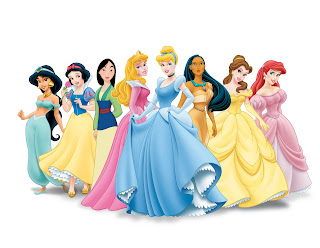On Friday I needed to take time out to explain to my class of twelve year olds why it was completely unacceptable to call a girl frigid because she
won’t go out with you.
 We’d just spent three weeks worth of PSHE lessons talking
about boundaries, sex and the importance of personal choice. We’re going to
spend some more time going over it again.
We’d just spent three weeks worth of PSHE lessons talking
about boundaries, sex and the importance of personal choice. We’re going to
spend some more time going over it again.
It started when I got asked, during question time, what
‘frigid’ means. I have to be honest, I stiffened; this is one of the
things that gets me riled. I explained that frigid means cold - as in
refrigerator - and then asked the context in which the word had been used.
I then had to explain to the class that frigid is, more
commonly, a derogatory word used by someone to put people down for saying ‘no’
to them. It’s a word used by people with a wounded pride. By people who do not
respect someone else’s right to say no. By people who don’t really care about you.
That it’s a way of telling someone that they are cold and unfriendly because they
won’t do what you want.
I likened it to someone asking you to give them the brand
new iPod you had just been given for your birthday and them calling you a cow
(or worse) when you won’t.
 It’s possible I rammed it home a bit far. But I’m OK with
that. You see, I think ‘frigid’ is one of the most powerful and damaging words
in the teenage lexicon. It’s a word that segregates a girl from the crowd, it
deems her an untouchable, it degrades her opinions, eats away her self-esteem
and tells her it’s not OK to say ‘no’. Again and again I have seen girls who
determine that they will never be
called frigid again. That they will
be accepted, that they will fit in,
that they will be what the boys want
. . . . whatever that involves.
It’s possible I rammed it home a bit far. But I’m OK with
that. You see, I think ‘frigid’ is one of the most powerful and damaging words
in the teenage lexicon. It’s a word that segregates a girl from the crowd, it
deems her an untouchable, it degrades her opinions, eats away her self-esteem
and tells her it’s not OK to say ‘no’. Again and again I have seen girls who
determine that they will never be
called frigid again. That they will
be accepted, that they will fit in,
that they will be what the boys want
. . . . whatever that involves.
I may be riled, but I’m glad this conversation came up. I
had been dancing around the topic, but this question forced my class, and me,
to face up to a nasty reality of teenage relationships. It’s one I’m writing
into the lesson plans for next year.
It’s one we need to write into our conversations with our
sons and our daughters. We need to make sure they understand that being called
frigid is as outrageous as being
called a nasty name for not handing over our treasured possessions to anyone who
asks for them.
We need to instil in our girls a confidence in their own
opinions, strength in their decision-making and a self-esteem that does not base
itself in other people’s opinion of them.
We need to bring up boys who have the ability to hear the
word no - in any situation - without kicking off, who value other people’s
opinions and . . . who have a
self-esteem that does not base itself in other’s opinion of them.
It’s not rocket science. But it's not easy either. It’s not
like teaching our children their times tables or helping them learn how to
conjugate a verb in French. We’re going to have to invest some time in this.
But we will see a return.
 We’re going to have to role model saying ‘No!’ and hearing ‘No!’.
We might have to make it possible for our children to say ‘No!’ to us
sometimes, just so that they can learn that they have the power to do so and,
importantly, that they have not wrecked a relationship by doing so.
We’re going to have to role model saying ‘No!’ and hearing ‘No!’.
We might have to make it possible for our children to say ‘No!’ to us
sometimes, just so that they can learn that they have the power to do so and,
importantly, that they have not wrecked a relationship by doing so.
We need to
say ‘No!’ to them, not just because what they want isn’t happening today but
because they have to learn to understand that not getting their own way is not
rejection.
We need to help them grow into adults who are considerate of
other people’s feelings, who put other people first but who understand they do
not carry the responsibility for making their friends and partners happy.
It’s like teaching them to walk a tightrope. It’s going to
take time and sometimes they are going to fall and get hurt, but, with enough
practice, they’ll work out how to walk forwards with confidence.




















